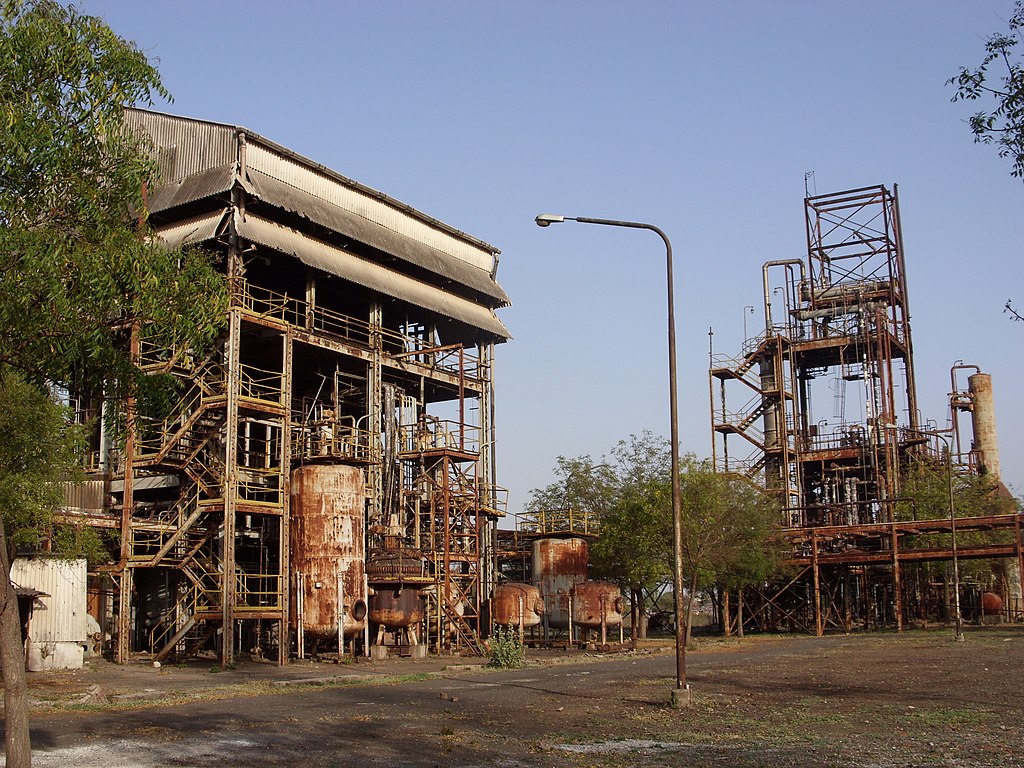Forty years and no justice for survivors of Bhopal’s environmental disaster
Recent studies show that the toxic cloud released into the environment in 1984 continues to impact the health of residents. The site of the US-owned plant responsible for the tragedy still holds over 330 tonnes of toxic waste. No one has ever been seriously prosecuted for the disaster and today, only grassroots associations are taking care of the survivors.
Bhopal (AsiaNews) – Forty years after the industrial disaster in Bhopal, survivors of the tragedy are back demanding justice.
To mark the occasion, several associations rallied this morning, marching to the plant site that poisoned tens of thousands of people (and continues to poison despite its closure).
On the night of 2 and 3 December 1984, a leak of methyl isocyanate – a chemical compound used to make pesticides – overwhelmed the residents of Bhopal, capital of the Indian state of Madhya Pradesh.
The toxic cloud killed thousands of people right away, choking them to death, more than 5,000, according to official reports. Later studies estimated that the gas may have killed at least 25,000, while more than 560,000 suffered irreversible damage to their health.
Even today, in and around the factory, babies are born with malformations and damage to their immune system, probably from soil and water contamination, a problem that has never been dealt with.
About 337 tonnes of toxic waste are still at the site and everything suggests that they will never be disposed of, because residents near every proposed disposal facility have objected to the disposal plan.
A study released last year by the Indian Council for Medical Research, which monitored the health level of more than 90,000 people between 1985 and 2015, found that individuals exposed to the gas had a 1.30 times higher risk of death than those who had not been exposed.
In Bhopal the rate of respiratory diseases is still twice as high as in the rest of India.
The chemical compound that caused the tragedy belonged to Union Carbide Corporation, a US pesticide manufacturer that shortly before the tragedy had decided to decommission the plant.
Methyl isocyanate tanks, however, were never emptied. And how more than 42 tonnes of methyl isocyanate were released into the environment has never been established.
In 1989, Union Carbide, a subsidiary of Dow Chemical since 2001, proposed to pay US$ 470 million in compensation to the victims – that is less than US$ 500 per person.
That year, the company was also aware that the waters in the region had also been contaminated, but the secret was only brought to light thanks to an investigation in 1999.
The company's CEO, Warren Anderson (who died in 2014 at the age of 92), was arrested in India on the morning of 3 December, but released a few days later (according to some, thanks to important connections). He was thus able to return to the United States, which refused to his extradition to India.
“We wish that US President-designate Donald Trump puts an end to the long history of injustice in Bhopal in his effort to make America great again. We hope Trump will take action against Union Carbide Corporation and the Dow Chemical Company,” said at today’s protest march Rashida Bee, 68, president of Bhopal Gas Peedit Mahila Stationery Karmchari Sangh, an association representing survivors.
Even among Indian officials, no one has ever been jailed. Those found guilty were granted bail, and appeals have never been heard because judges who try to do so are regularly moved.
Several local activists point out that, despite several rulings by the Supreme Court, India has never properly compensated the victims, who often have to deal with tumours or kidney dysfunctions as a result of contamination.
The Madhya Pradesh state government continues to supply drinking water, but it is mainly local NGOs who take care of people with illnesses and disabilities.
Rashida Bee herself, who lost six family members to cancer, is co-founder of an association that offers free treatment to children.
07/06/2010
22/02/2008







.png)










